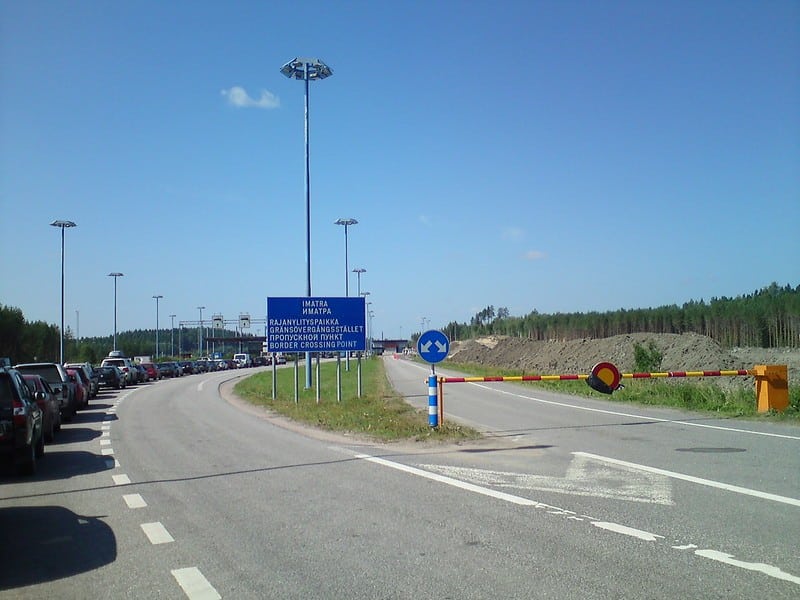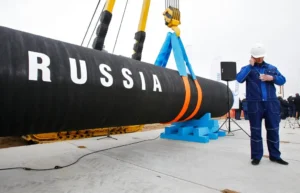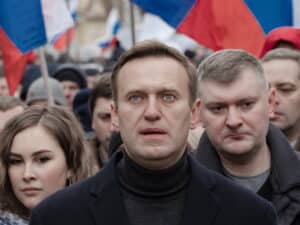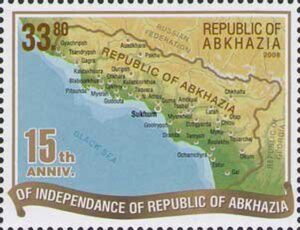Border Crossing Point Imatra, 2013 (Source: Flickr)
With the announcement of Putin’s mobilisation plan, war suddenly invades living rooms from St Petersburg to Vladivostok. Young Russian men, some without any military experience, were called up to turn the tide in Putin’s so far unsuccessful war in Ukraine. It led to a mass exodus of some 200,000 Russians seeking refuge abroad. As a new wave of refugees increases, attention is turning to the European response.
Several countries welcome Russians fleeing conscription
As the scarce availability of flights from Russia to countries still served by Russian airlines sold out in no time, Russians are fleeing in large numbers by car, bicycle or even on foot. A long queue has formed at the Georgia-Russia border, with several young men waiting to hide in the Caucasus country in anticipation of a mobilisation call. On Sunday 25 September, the estimated waiting time to enter Georgia was 48 hours, with 3,000 vehicles queuing at the border crossing. Georgian officials report that more than 10,000 Russians a day are crossing the border, and 53,000 Russians have entered the country since last week.
Similar images occur on the border with Kazakhstan, which has welcomed around 100,000 Russians since the announcement of the mobilisation. The country has recently spoken out against Moscow-organised annexation referendums in Ukraine, and Kazakh President Kassym-Jomart Tokayev has openly expressed support for Russians fleeing conscription. On 27 September, Tokayev said most Russians leave because there is no other way. He called on the people of Kazakhstan to provide support and care and ensure the safety of newly arrived Russians. He further said he will refuse extradition of Russians on charges of running away from service duties. The position of Kazakhstan, originally a reliable political and economic partner of Russia, will no doubt be dissaproved by the Kremlin. On a much smaller scale, about 3,000 Russians have reportedly entered Mongolia.
Doors to the European Union are mostly closed
Finland welcomed 43,000 Russians in the same period, but unlike visa-free entry for Russian nationals in Georgia and Kazakhstan, Russians must apply for a Schengen visa to enter Finland. The same applies to non-EU member Norway, which is also part of the Schengen area and reports an increase in border crossings by Russian nationals. It is the last part of Russia’s land border with the Schengen area that can be entered from Russia. All Baltic states and Poland (Lithuania and Poland share a border with the Russian enclave of Kaliningrad) have announced that they will refuse to accept Russians fleeing the mobilisation. An entry ban on Russians was imposed at midnight on 26 September, with Russians trying to enter on tourist visas being refused entry. Finland remained open, but consular arrangements for Russian visa applicants have been restricted and Finland’s foreign minister, Pekka Haavisto, has announced that all Russians with a valid tourist visa will be denied entry to Finland.
While countries on the European Union’s external border take a hard line against Russian asylum seekers, other European countries welcomed those who desert Putin’s army. Germany has advocated granting asylum to Russians. Interior Minister Nancy Faeser, German Justice Minister Marco Buschmann and MP Robin Wagener, among others, have advocated allowing asylum on grounds of political persecution for Russians. France has also indicated its willingness to accept Russian asylum seekers. This is not to everyone’s satisfaction: the Ukrainian community, for example, has reacted negatively to the possible granting of asylum to Russian deserters.
Complicated route to a disagreeing Europe
Now that the EU’s external borders are closed, the cumbersome way in which Russian deserters reach countries favourable for asylum claims is also open to question. As Russian airlines have been non grata at European airports since the invasion, air tickets to other countries have become unaffordable or unavailable, and overland routes are prevented by border guards, Russian deserters and their families are being pointed to visa-free neighbouring countries in the Caucasus and Central Asia as an alternative to Europe. This also creates increased pressure on countries like Georgia. Moreover, the discussion on the issue of Russian asylum seekers cannot be conducted only at the national level; a consensus will also have to be found at the continental level. In addition, the social question arises how to reconcile the reception of Russian refugees with the millions of Ukrainian refugees who have been scattered across Europe since the invasion. For parts of this community, the developments are undoubtedly painful to watch and could lead to potential tensions.
Author: Mathieu Neelen
Sources: AlJazeera1, AlJazeera2, DeutscheWelle1, DeutscheWelle2, FinancialTimes, Politico, Reuters1, Reuters2, Reuters3, TheMoscowTimes
Photo: Flickr



